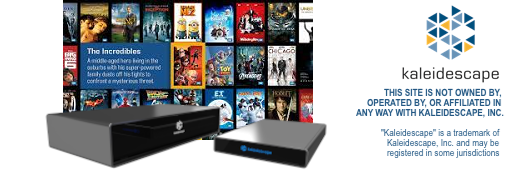Before the forum lost some content I had posted a question about the applicability of the Magnuson–Moss Warranty Act and how Kaleidescape seemed to navigate around this Act by insisting that only HDDs from Kaleidescape only be installed into Kaleidescape equipment. At the time I mentioned that other vendors did not prevent this by citing Dish and DirectTV DVRs and gaming consoles provided by Microsoft and Sony.
The responses to that post were not favorable. My hopes that a clever someone would figure out how to offer economical third party replacement or upgraded storage option which was compliant with EULAs and other legal compliance for me were dashed.
A recent SCOTUS case of Impression Products, Inc. v. Lexmark International, Inc., Case No. 15-1189 , the Supreme Court at the end of last month ruled 7-1 against Lexmark preventing a third party from reselling printer cartridges for Lexmark devices. This SCOTUS case attracted alot of attention and "on behalf of" from a variety of interested parties.
The implications of this case seem to be larger that printer cartridges based on the outpouring of articles in a wide range of industry posts on this.
With many of the forum leaders appearing to have legal occupations, any comment on if this this ruling affects our Kaleidescape relationship? Is the possibility of third party HDDs being used legally within a Kaleidescape drive chassis now possible?
Just curious.
Cheers
The responses to that post were not favorable. My hopes that a clever someone would figure out how to offer economical third party replacement or upgraded storage option which was compliant with EULAs and other legal compliance for me were dashed.
A recent SCOTUS case of Impression Products, Inc. v. Lexmark International, Inc., Case No. 15-1189 , the Supreme Court at the end of last month ruled 7-1 against Lexmark preventing a third party from reselling printer cartridges for Lexmark devices. This SCOTUS case attracted alot of attention and "on behalf of" from a variety of interested parties.
The implications of this case seem to be larger that printer cartridges based on the outpouring of articles in a wide range of industry posts on this.
With many of the forum leaders appearing to have legal occupations, any comment on if this this ruling affects our Kaleidescape relationship? Is the possibility of third party HDDs being used legally within a Kaleidescape drive chassis now possible?
Just curious.
Cheers


